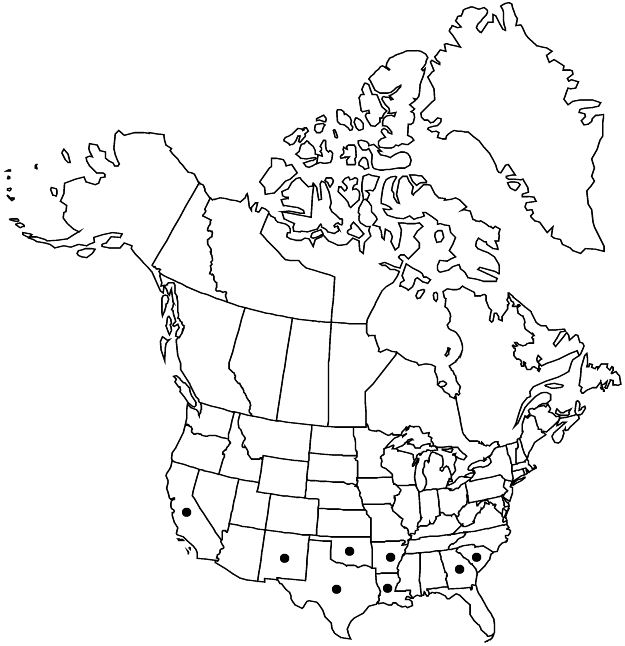Difference between revisions of "Tamarix gallica"
Sp. Pl. 1: 270. 1753.
Common names: French tamarisk
IntroducedWeedy
FNA>Volume Importer |
FNA>Volume Importer |
||
| Line 31: | Line 31: | ||
|elevation=0–300 m | |elevation=0–300 m | ||
|distribution=Ark.;Calif.;Ga.;La.;N.Mex.;Okla.;S.C.;Tex.;s Europe;introduced also in Mexico (Chihuahua;Durango;Sinaloa);South America (Argentina). | |distribution=Ark.;Calif.;Ga.;La.;N.Mex.;Okla.;S.C.;Tex.;s Europe;introduced also in Mexico (Chihuahua;Durango;Sinaloa);South America (Argentina). | ||
| − | |discussion=<p>Tamarix gallica is morphologically very similar to, and may form hybrids with T. canariensis.</p> | + | |discussion=<p><i>Tamarix gallica</i> is morphologically very similar to, and may form hybrids with <i>T. canariensis</i>.</p> |
|tables= | |tables= | ||
|references= | |references= | ||
| Line 56: | Line 56: | ||
|publication year=1753 | |publication year=1753 | ||
|special status=Introduced;Weedy | |special status=Introduced;Weedy | ||
| − | |source xml=https://jpend@bitbucket.org/aafc-mbb/fna-data-curation.git/src/ | + | |source xml=https://jpend@bitbucket.org/aafc-mbb/fna-data-curation.git/src/8f726806613d60c220dc4493de13607dd3150896/coarse_grained_fna_xml/V6/V6_788.xml |
|genus=Tamarix | |genus=Tamarix | ||
|species=Tamarix gallica | |species=Tamarix gallica | ||
Revision as of 18:50, 18 September 2019
Shrubs or trees, to 5 m. Leaves: blade lanceolate, 1.5–2 mm. Inflorescences 2–5 cm × 4–5 mm; bract exceeding pedicel, not reaching calyx tip. Flowers 5-merous; sepals 0.5–1.5 mm, margins entire or subentire; petals elliptic to ovate, 1.5–2 mm; antisepalous stamens 5, filaments confluent with nectar disc lobes, all originating from edge of disc. 2n = 24.
Phenology: Flowering spring–early fall.
Habitat: Ocean shorelines, riverways, sandy soil
Elevation: 0–300 m
Distribution
Loading map...

Ark., Calif., Ga., La., N.Mex., Okla., S.C., Tex., s Europe, introduced also in Mexico (Chihuahua, Durango, Sinaloa), South America (Argentina).
Discussion
Tamarix gallica is morphologically very similar to, and may form hybrids with T. canariensis.
Selected References
None.
Lower Taxa
None.